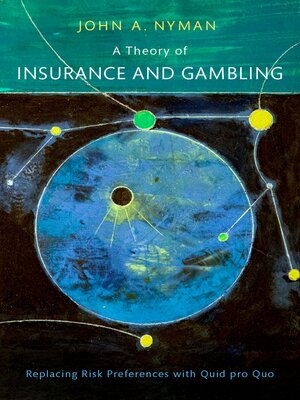A Theory of Insurance and Gambling
ebook ∣ Replacing Risk Preferences with Quid pro Quo
By John A. Nyman

Sign up to save your library
With an OverDrive account, you can save your favorite libraries for at-a-glance information about availability. Find out more about OverDrive accounts.
Find this title in Libby, the library reading app by OverDrive.



Search for a digital library with this title
Title found at these libraries:
| Library Name | Distance |
|---|---|
| Loading... |
In 1948, Milton Friedman and L. J. Savage suggested that risk preferences explain the demand for insurance and gambling—a theory that is still almost universally accepted by economists today. If you were to ask almost any economist why people purchase insurance, they would say it is because most people are "risk averse," or equivalently, "prefer certainty of losses." If asked to explain why people gamble, they would say it is because some people are "risk seekers." In A Theory of Insurance and Gambling, John A. Nyman critiques this approach and proposes a new theory of the motivations for insurance and gambling. He argues that demand for insurance and gambling is best understood by focusing not on risk preferences, but on the income transfer, the states of the world that trigger the income transfer, and the value of the income in those states. In other words, insurance is motivated by a preference to transfer income to future states of the world where income is more valuable. Gambling, on the other hand, is motivated by a preference to transfer income to future states of the world where additional income is less costly to obtain. Nyman ultimately seeks to reorient how economists think about insurance and gambling by moving away from seeing uncertainty as a negative motivating factor to simply a mechanical feature that allows for the augmentation of income and consumption. He moves away from biased models that ignore income effects and state dependency when evaluating the benefits from insurance and gambling, and away from preferences regarding risk toward the desire to obtain additional future income. Presenting the case that risk preferences do not motivate demand for insurance or gambling, A Theory of Insurance and Gambling calls into question a fundamental tenet of economic thinking.







